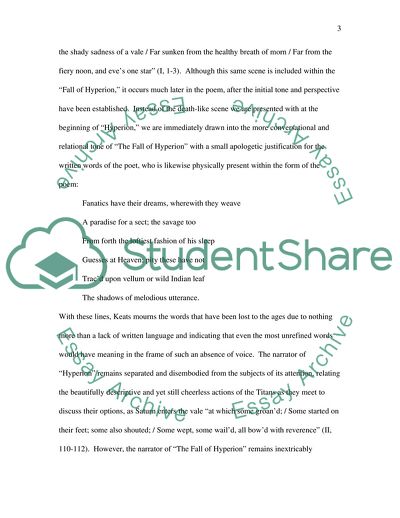Cite this document
(Hyperion and Fall of Hyperion Book Report/Review, n.d.)
Hyperion and Fall of Hyperion Book Report/Review. https://studentshare.org/literature/1704036-comment-on-thematic-and-stylistic-differences-between-john-keatss-hyperion-and-the-fall-of-hyperion
Hyperion and Fall of Hyperion Book Report/Review. https://studentshare.org/literature/1704036-comment-on-thematic-and-stylistic-differences-between-john-keatss-hyperion-and-the-fall-of-hyperion
(Hyperion and Fall of Hyperion Book Report/Review)
Hyperion and Fall of Hyperion Book Report/Review. https://studentshare.org/literature/1704036-comment-on-thematic-and-stylistic-differences-between-john-keatss-hyperion-and-the-fall-of-hyperion.
Hyperion and Fall of Hyperion Book Report/Review. https://studentshare.org/literature/1704036-comment-on-thematic-and-stylistic-differences-between-john-keatss-hyperion-and-the-fall-of-hyperion.
“Hyperion and Fall of Hyperion Book Report/Review”. https://studentshare.org/literature/1704036-comment-on-thematic-and-stylistic-differences-between-john-keatss-hyperion-and-the-fall-of-hyperion.


